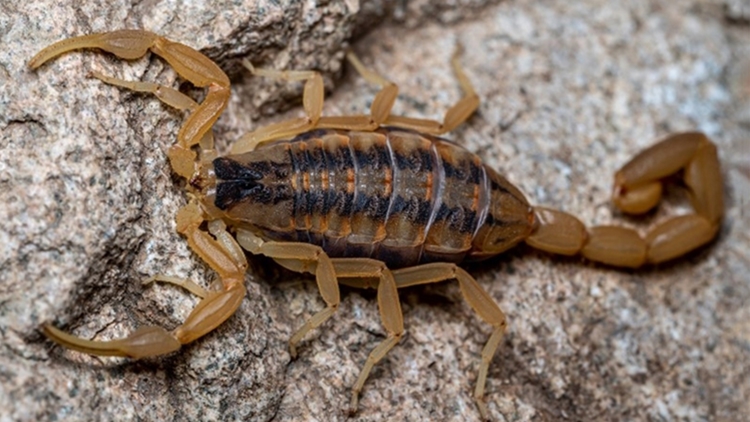FAYETTEVILLE, Ark. — Scientists in Arkansas are researching the potential medical properties of scorpion venom.
According to a release, scientists at Arkansas Tech University (ATU) and the University of Arkansas (U of A) have "produced a high-quality genome assembly for a scorpion," which they say could lead to the development of pain treatments.
ATU biology professor Tsunemi Yamashita has been working with students and U of A researchers Douglas Rhoads, Jeff Pummill, and Suresh Thallapuranam to expand the project.
"The scorpion genome we have produced is one of the best from a group of organisms that gets less attention but produces proteins that have biomedical importance for pain and pain relief," Rhoads said.
The group has been working with scorpions common in Arkansas.
Yamashita has been collecting the specimens and performing the DNA and RNA extractions in the Natural State, while genome sequencing has taken place at Michigan State University, Mississippi State University, and King Abdullah University of Science and Technology.
"The striped bark scorpion, Centruroides vittatus, is of interest as it is the only scorpion that inhabits the Midwest, ranging into Arkansas, Missouri, Illinois, Louisiana, with potentially human transported populations established outside their known geographic range across the Mississippi River into areas such as middle Tennessee," said Yamashita. "As such, it exhibits an interesting evolutionary history of range expansion."
Yamashita and Thallapuranam are working to single out and study the activities of individual of toxin proteins, and Pummill is leading the computer work to assemble the genome.
The release says that Rhoads and Pummill are now collaborating with Steven Beaupre at the U of A and Ryan Stork at Harding University on genomes from brown recluse and wolf spiders in order to compare them to scorpions.
Watch 5NEWS on YouTube.
Download the 5NEWS app on your smartphone:
Stream 5NEWS 24/7 on the 5+ app: How to watch the 5+ app on your streaming device
To report a typo or grammatical error, please email KFSMDigitalTeam@tegna.com and detail which story you're referring to.



